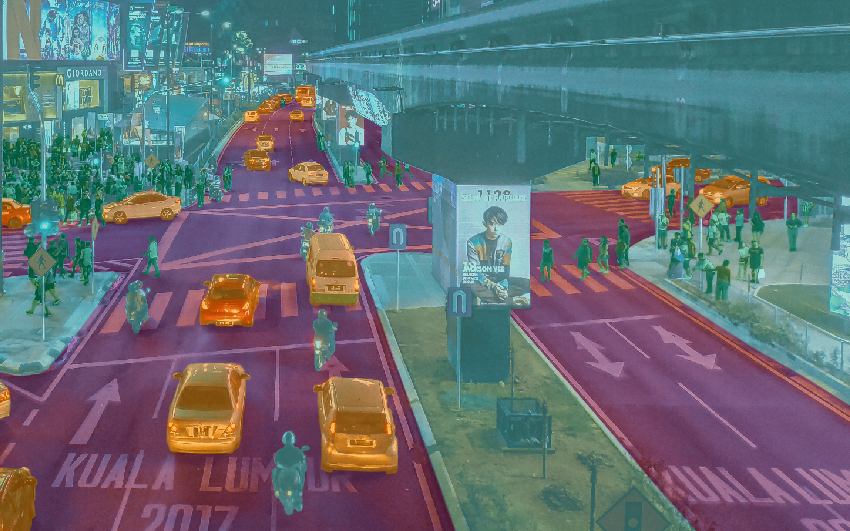
Interactive Labeling and Data Augmentation for Vision
Program
Schedule (All times are Eastern)
- 13:00-13:15 Welcome and opening remarks
- 13:15-13:45 Keynote 1: Gim Hee Lee, Deep Spatial Understanding with Fewer Annotated Data - video
- 13:50-14:20 Keynote 2: Angela Dai, Learning to Generate 3D Scenes from Imperfect Data - video
- 14:25-15:30 Poster session - playlist
- 15:30-16:00 Keynote 3: Vittorio Ferrari, Recent works on human-machine collaborative annotation and transfer learning - video
- 16:00-17:00 Poster session (continued) - playlist
- 17:00-17:30 Paper awards and closing remarks
Keynotes
- Vittorio Ferrari
Recent works on human-machine collaborative annotation and transfer learning
Summary: I will start by presenting Localized Narratives, a new form of multimodal image annotations connecting vision and language, where annotators describe an image using both their voice and the mouse pointer simultaneously. I will then continue with Pointillism, a protocol to provide point annotations useful for seeding segmentation algorithm, which is immediately clear even to untrained annotators. Though a Pointillism annotation campaign on top of Localized Narratives, we produced annotations for about 2600 classes, with an open-world dictionary completed emerging bottom-up from spontaneous annotator behaviour. Finally, I will give an overview of our recent large-scale systematical study of transfer learning for structured prediction tasks. We carried out over 1200 transfer experiments, and derived insights about the impact of image domain, task type, and dataset size on transfer learning performance. - Gim Hee Lee
Deep Spatial Understanding with Fewer Annotated Data
Summary: Despite the success of deep learning in many computer vision-related tasks, it remains extremely challenging for widespread applications due to the requirement of large amounts of annotated data for training. This problem is further aggravated in spatial understanding tasks, where the ground truth annotations are often laborious to obtain. In this talk, I will share our recent works on bridging non co-occurrence with unlabeled in-the-wild data for incremental object detection; few-shot learning for 3D point cloud semantic segmentation; and unsupervised domain adaptation to transfer knowledge from synthetic to real data for animal pose estimation. - Angela Dai
Learning to Generate 3D Scenes from Imperfect Data
Summary: Reconstructing and understanding real-world 3D environments has seen significant progress in recent years, with the introduction of several real-world 3D scan datasets, but remains challenging due to the imperfect nature of the data, which is typically noisy and incomplete. In this talk, I will present a self-supervised formulation for generative learning for 3D reconstruction from incomplete, real-world scans, followed by self-supervision for colored 3D scene generation by differentiable rendering. Finally, to understand the object composition of a 3D scene, we leverage inexact associations with synthetic data to compose priors for jointly learned object completion and part segmentation in a 3D scene.
Accepted Papers (proceedings)
Xinyue Wei (University of California San Diego)*; Weichao Qiu (Johns Hopkins University); Yi Zhang (Johns Hopkins University); Zihao Xiao (Johns Hopkins University); Alan Yuille (Johns Hopkins University)
Yuying Hao (Baidu)*; Yi Liu (Baidu Inc.); Zewu Wu (Baidu); Lin Han (New York University); Yizhou Chen (Chongqing Jiaotong University); Guowei Chen (Baidu, Inc); Lutao Chu (Baidu); Shiyu Tang (Baidu.com, Inc); Zhiliang Yu (Baidu); Zeyu Chen (Baidu, Inc.); Baohua Lai (Baidu)
Rowel Atienza (University of the Philippines)*
Vishal Vinod (Indian Institute of Science)*; Ram K Prabhakar (Indian Institute of Science); Venkatesh Babu RADHAKRISHNAN (Indian Institute of Science); Anirban Chakraborty (Indian Institute of Science)
Pranav Acharya (UC Santa Barbara)*; Daniel Lohn (University of California, Santa Barbara); Vivian Ross (University of California Santa Barbara); Maya C Ha (UCSB); Alex N Rich (University of California, Santa Barbara); Ehsan Sayyad (UCSB); Tobias Hollerer (UCSB)
Shuhao Qiu (Beijing University of Posts and Telecommunications); Chuang Zhu (Beijing University of Posts and Telecommunications )*; WENLI ZHOU (BEIJING UNIVERSITY OF POSATS AND TELECOMMUNICATIONS)
Soonchan Park (Eletronics and Telecommunications Research Institute); Jinah Park (KAIST)*
Feng Chen (Computer Vision Laboratory - University of Nottingham)*; Michael P Pound (University of Nottingham); Andrew French (University of Nottingham)
Angira Sharma (University of Oxford)*; Naeemullah Khan (University of Oxford); Muhammad Mubashar (LUMS); Ganesh Sundaramoorthi (Kaust); Philip Torr (University of Oxford)
Javad Zolfaghari Bengar (Computer Vision Center)*; Joost van de Weijer (Computer Vision Center); Bartlomiej Twardowski (Computer Vision Center, UAB); BOGDAN RADUCANU (Computer Version Center)
Matteo Pennisi (University of Catania); Simone Palazzo (University of Catania); Concetto Spampinato (University of Catania)*
Mickael Cormier (Fraunhofer IOSB, Karlsruhe, Germany)*; Fabian Röpke (Fraunhofer IOSB, Karlsruhe, Germany); Thomas Golda (Fraunhofer IOSB, Karlsruhe, Germany ); Jürgen Beyerer (Fraunhofer IOSB)
Svetlana Illarionova (Skolkovo institute of Science and Technology)*; Sergey Nesteruk (Skoltech); Dmitrii Shadrin (Skoltech); Vladimir Ignatiev (Skoltech); Maria Pukalchik (Skolkovo Institute of Science and Technology); Ivan Oseledets (Skolkovo Institute of Science and Technology)
Marten Franke (University of Bremen)*; Vaishnavi Gopinath (University of Bremen); Chaitra Reddy (University of Bremen); Danijela Ristic-Durrant (University of Bremen); Kai Michels (University of Bremen)
Robby Neven (KU Leuven)*; Davy Neven (KU Leuven); Bert De Brabandere (KU Leuven); Marc Proesmans (KU Leuven); Toon Goedemé (KU Leuven - EAVISE)
Gyungin Shin (University of Oxford)*; Weidi Xie (University of Oxford); Samuel Albanie (University of Cambridge)
Moab Arar (Tel Aviv University )*; Ariel Shamir (The Interdisciplinary Center); Amit H Bermano (Tel-Aviv University)
Accepted Papers (extended abstracts)
Yasunori Ishii (Panasonic)*; Takayoshi Yamashita (Chubu University)
Agnieszka Mikołajczyk (Gdańsk University of Technology)*; Michał Grochowski (Gdańsk University of Technology)